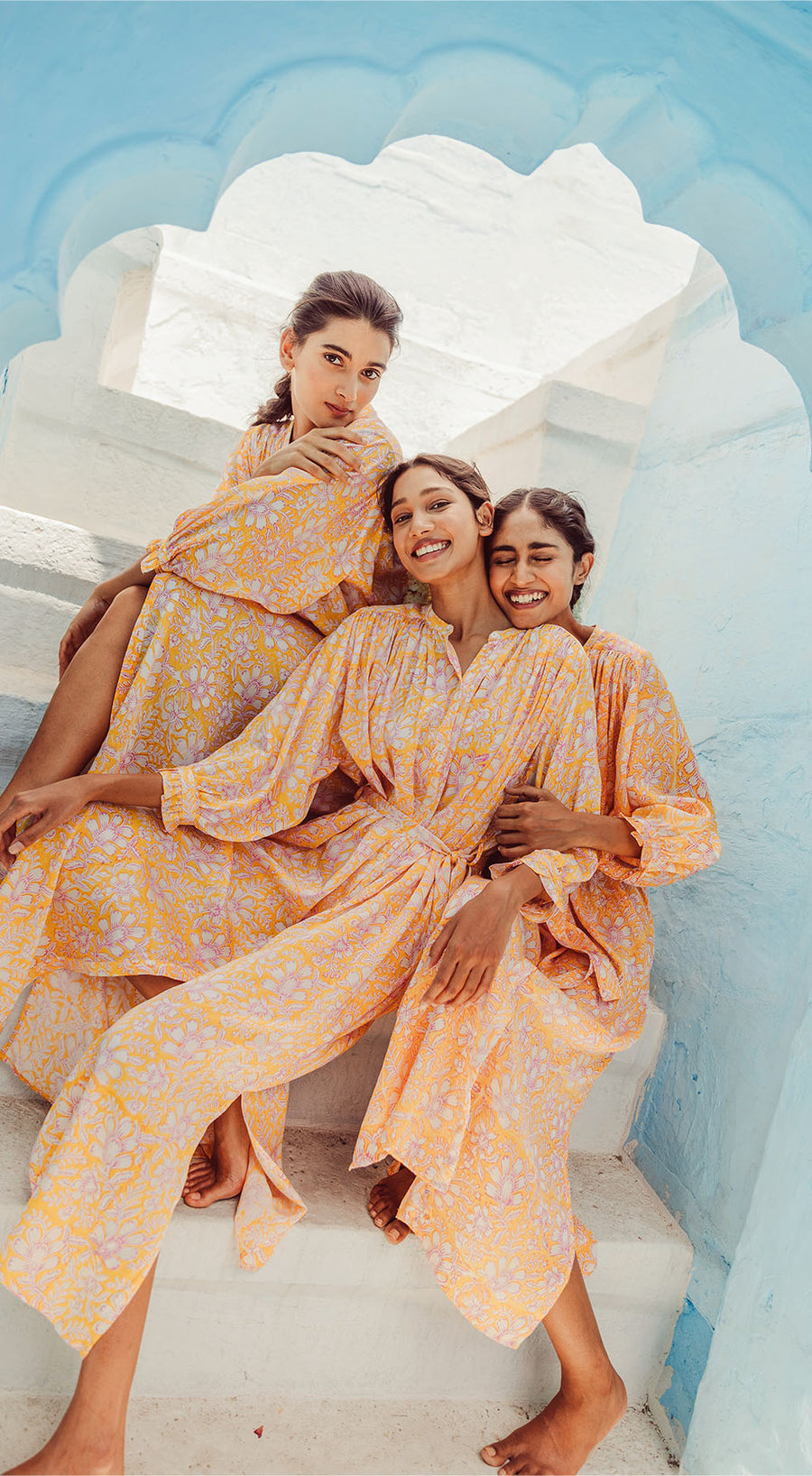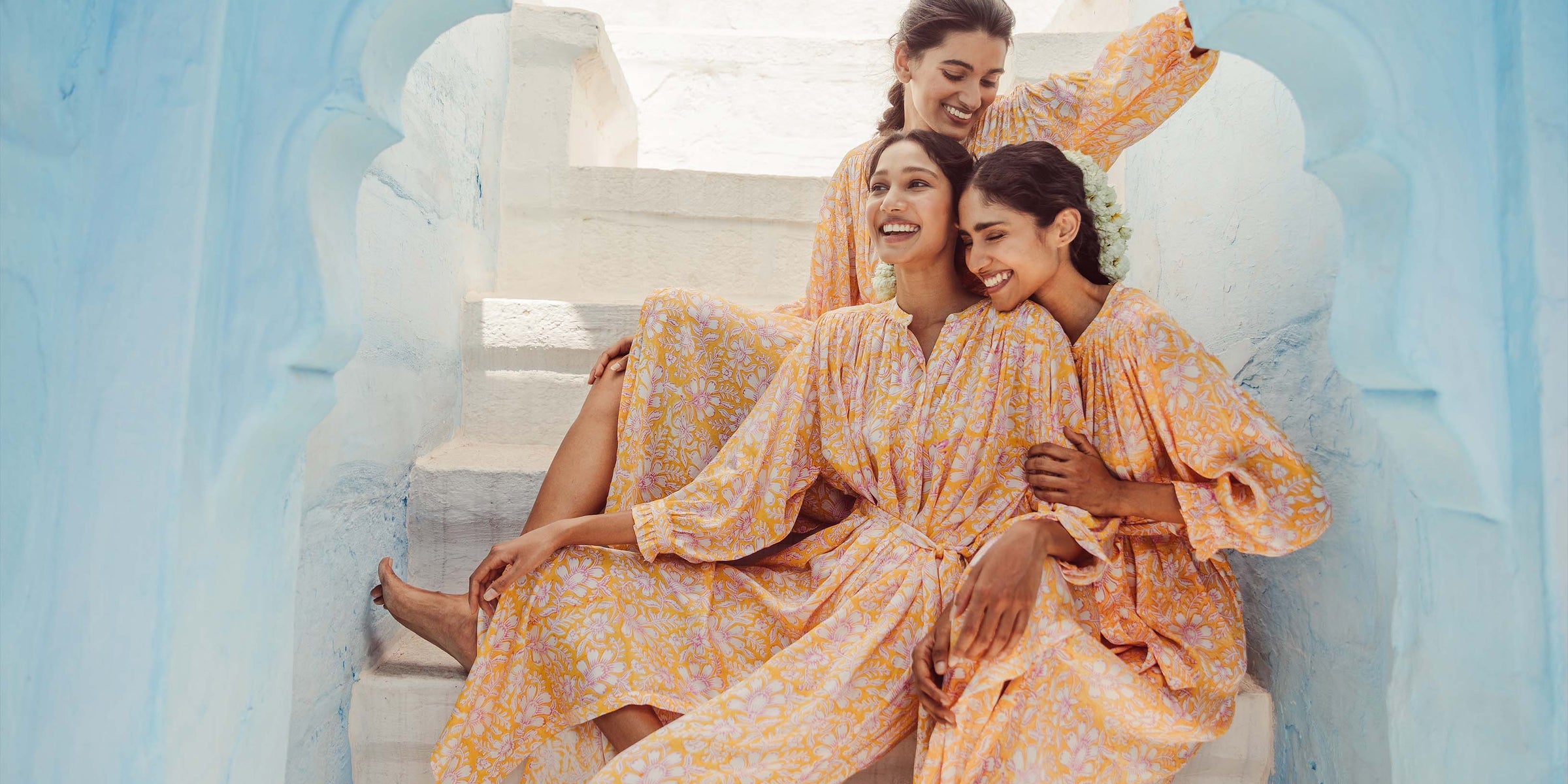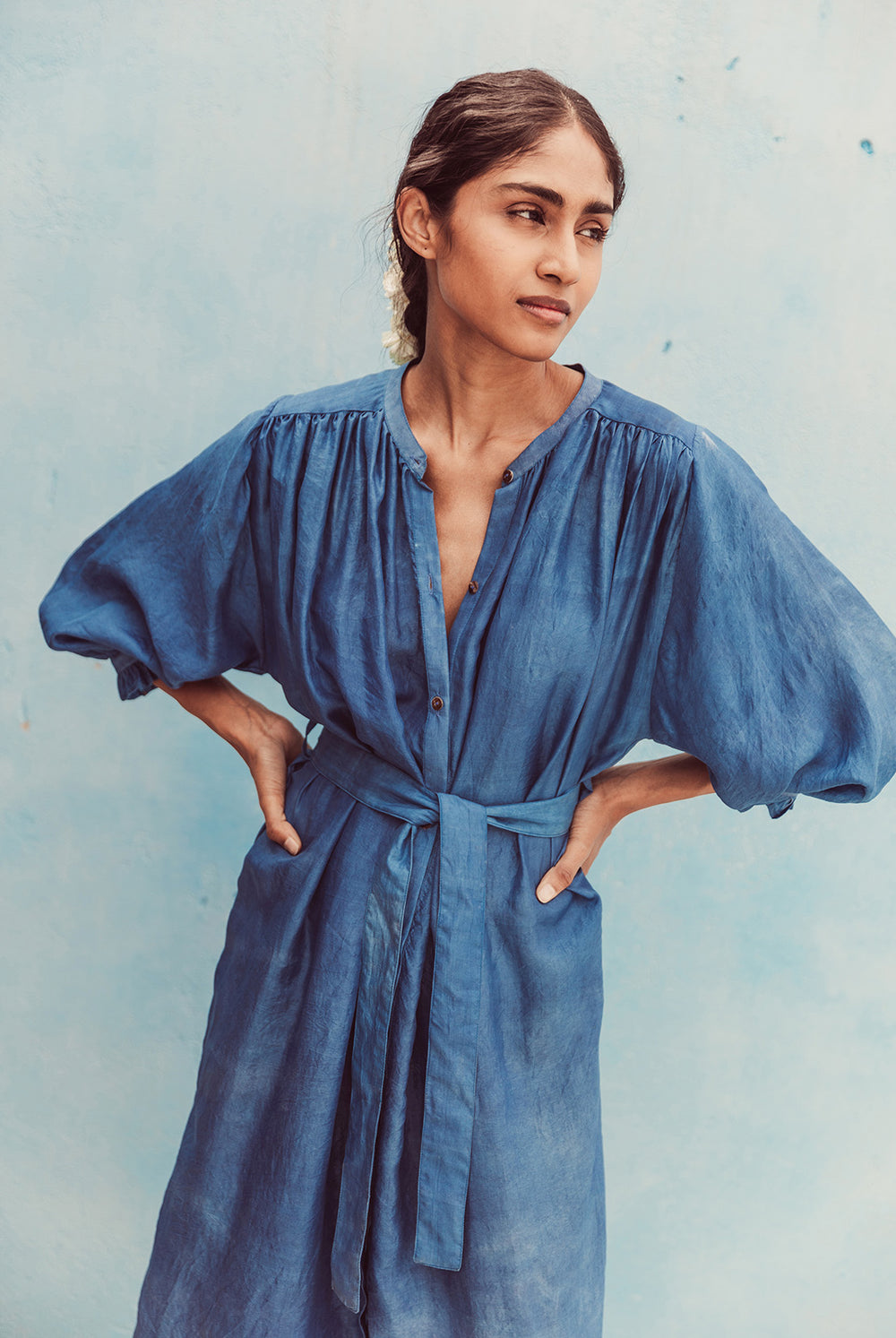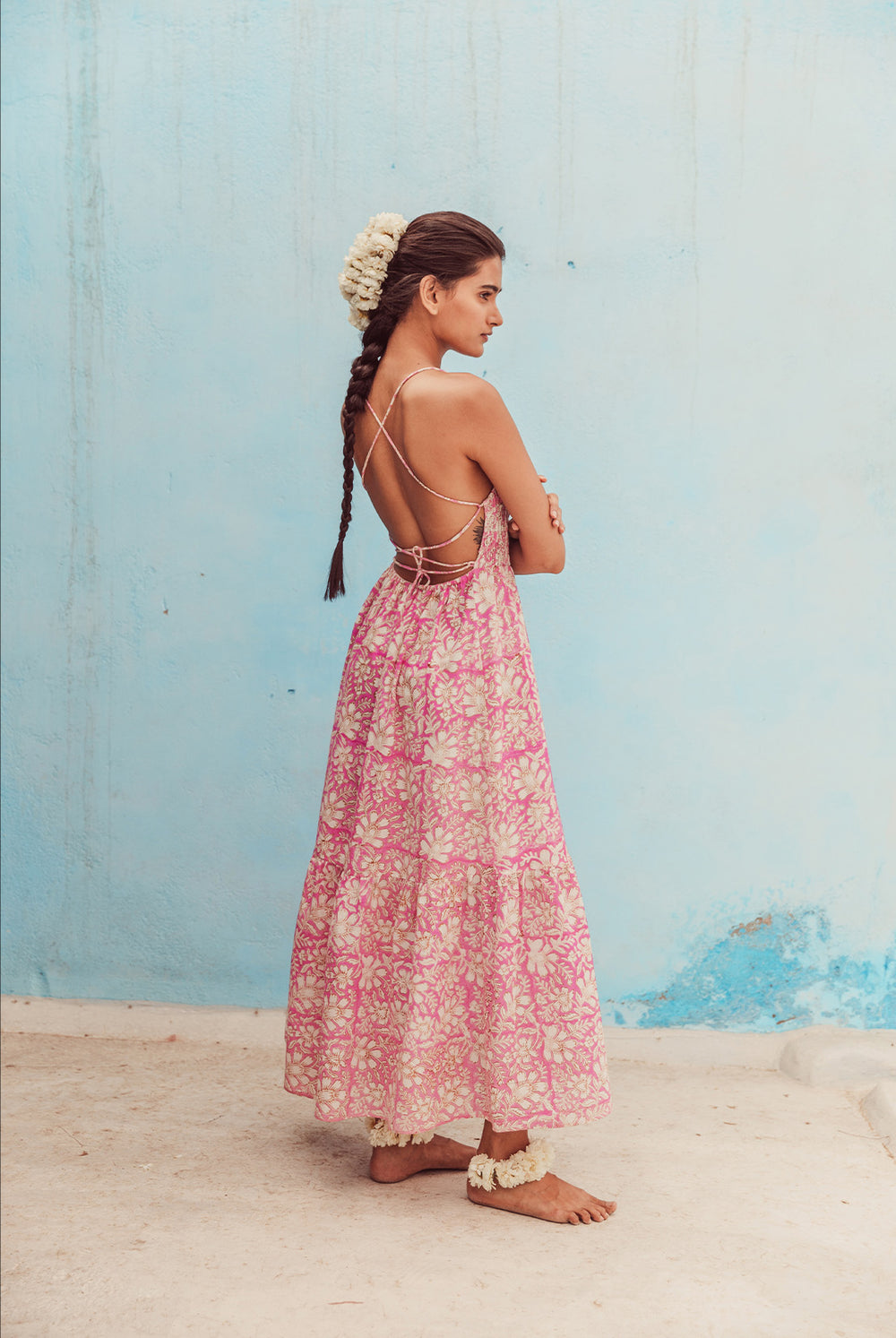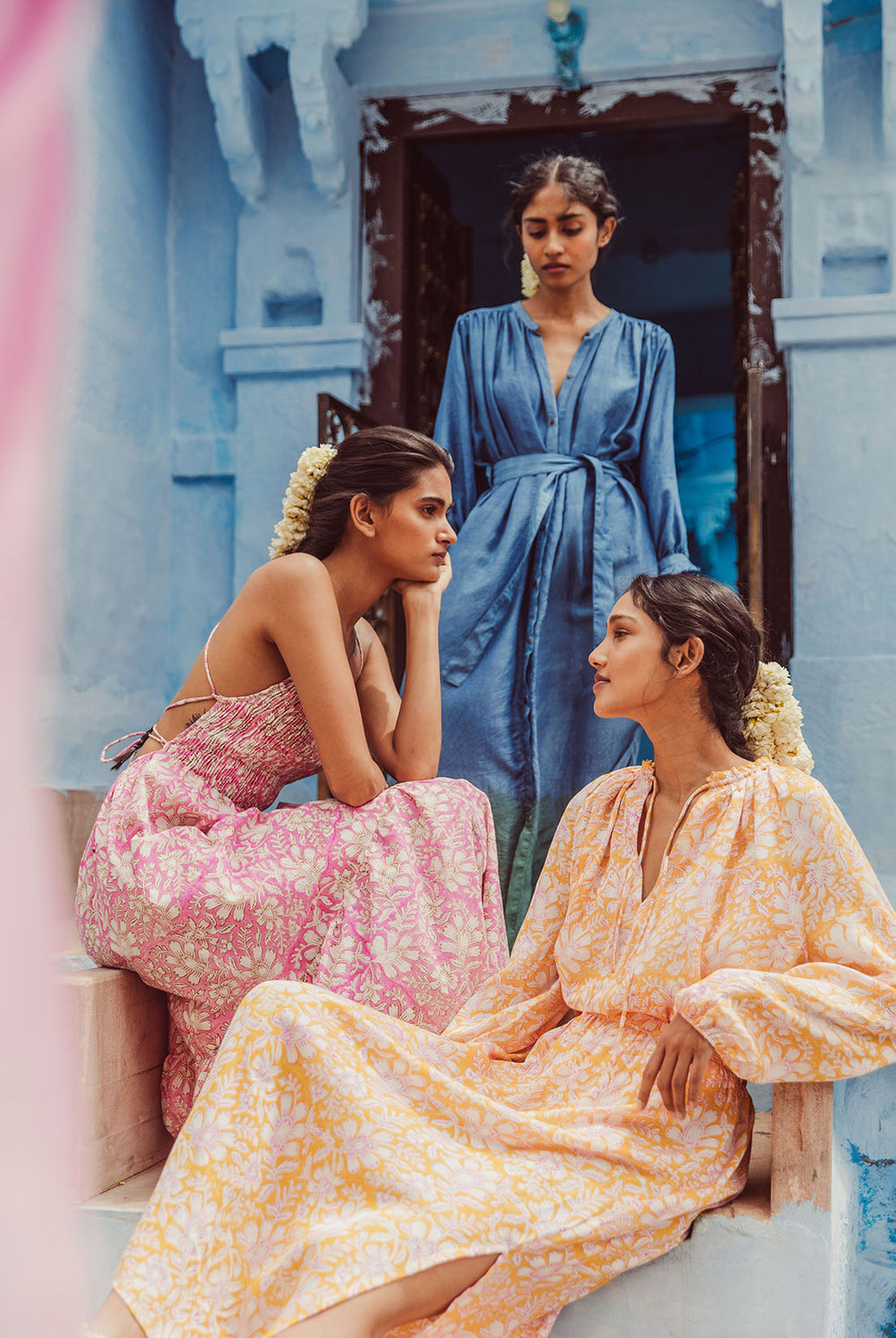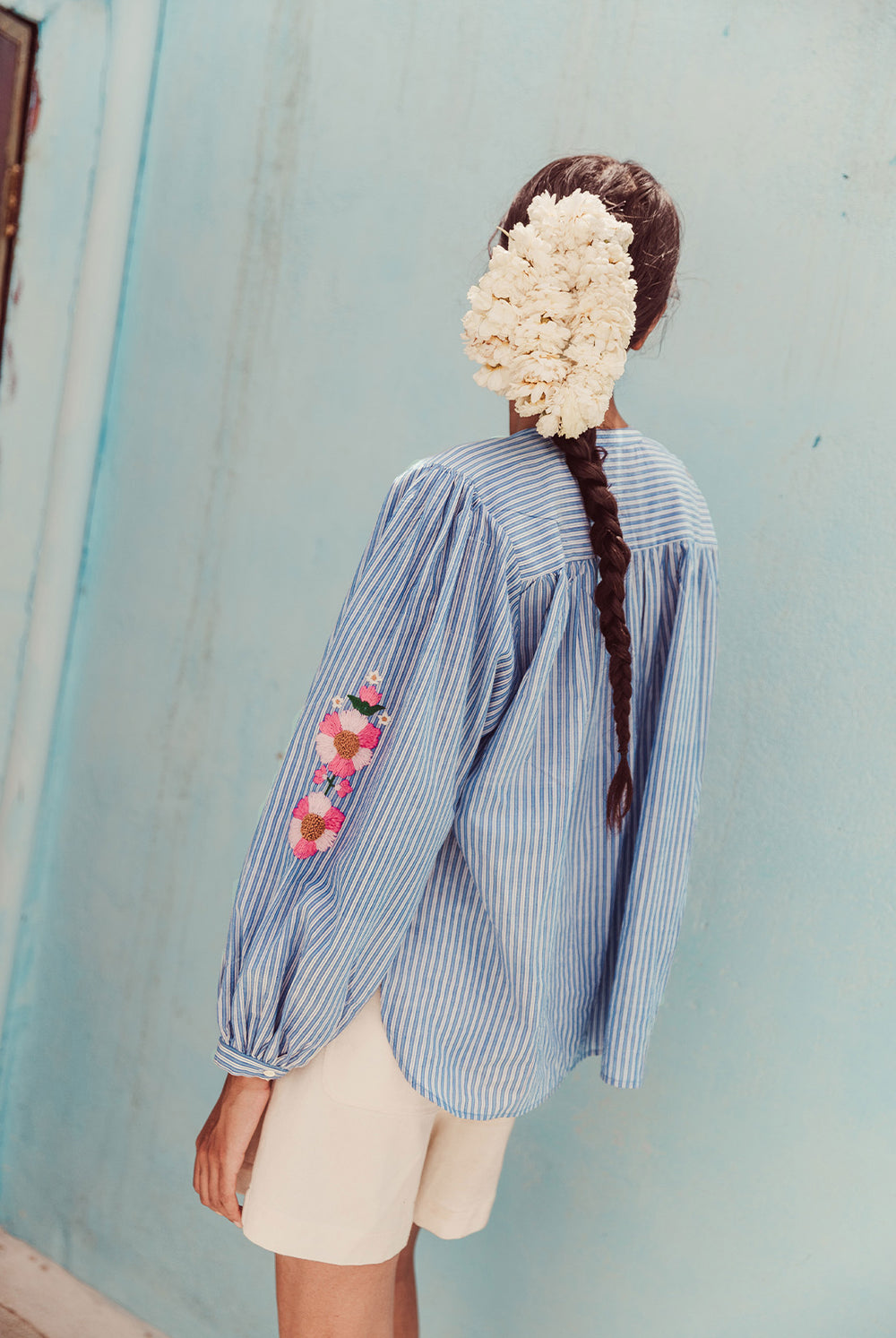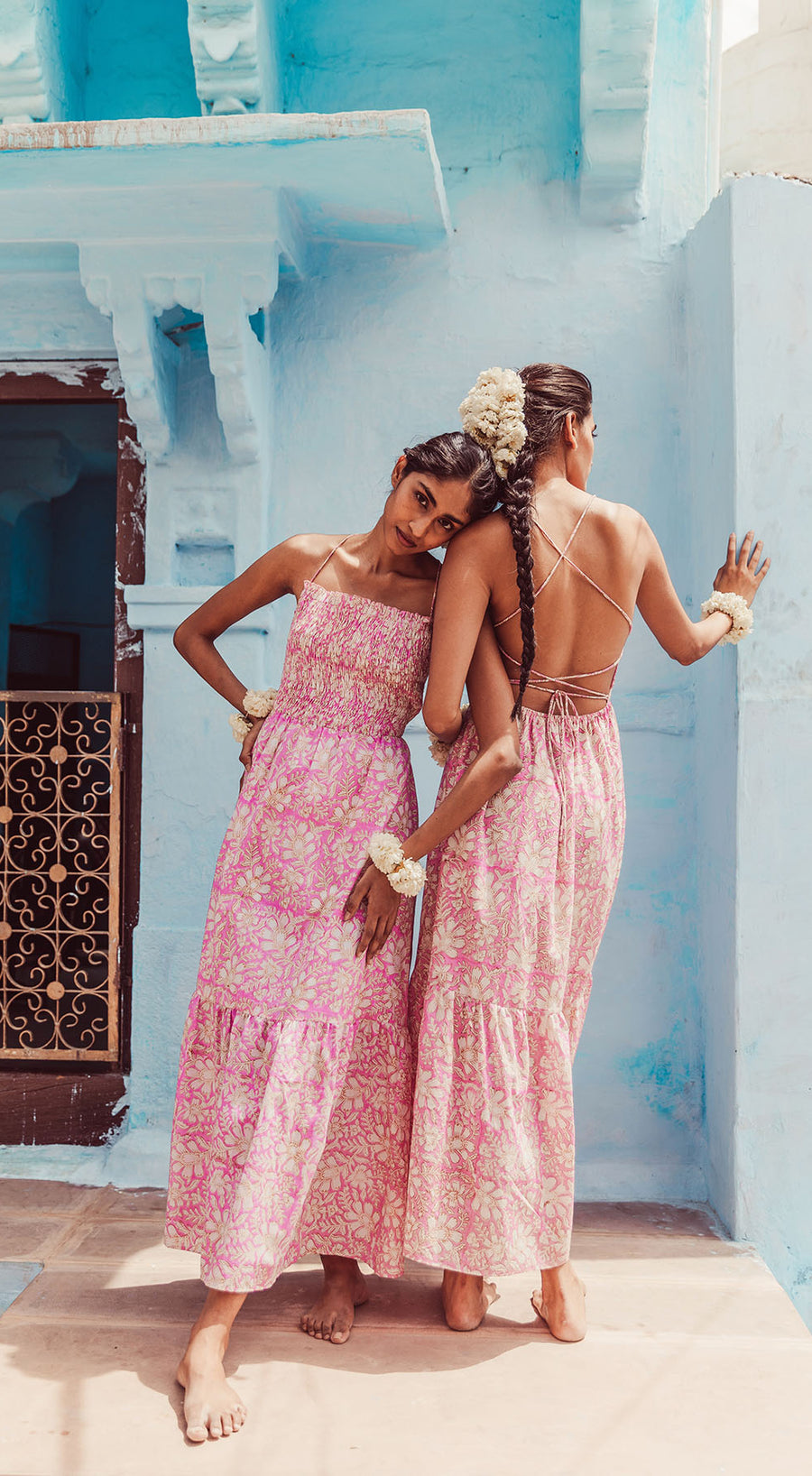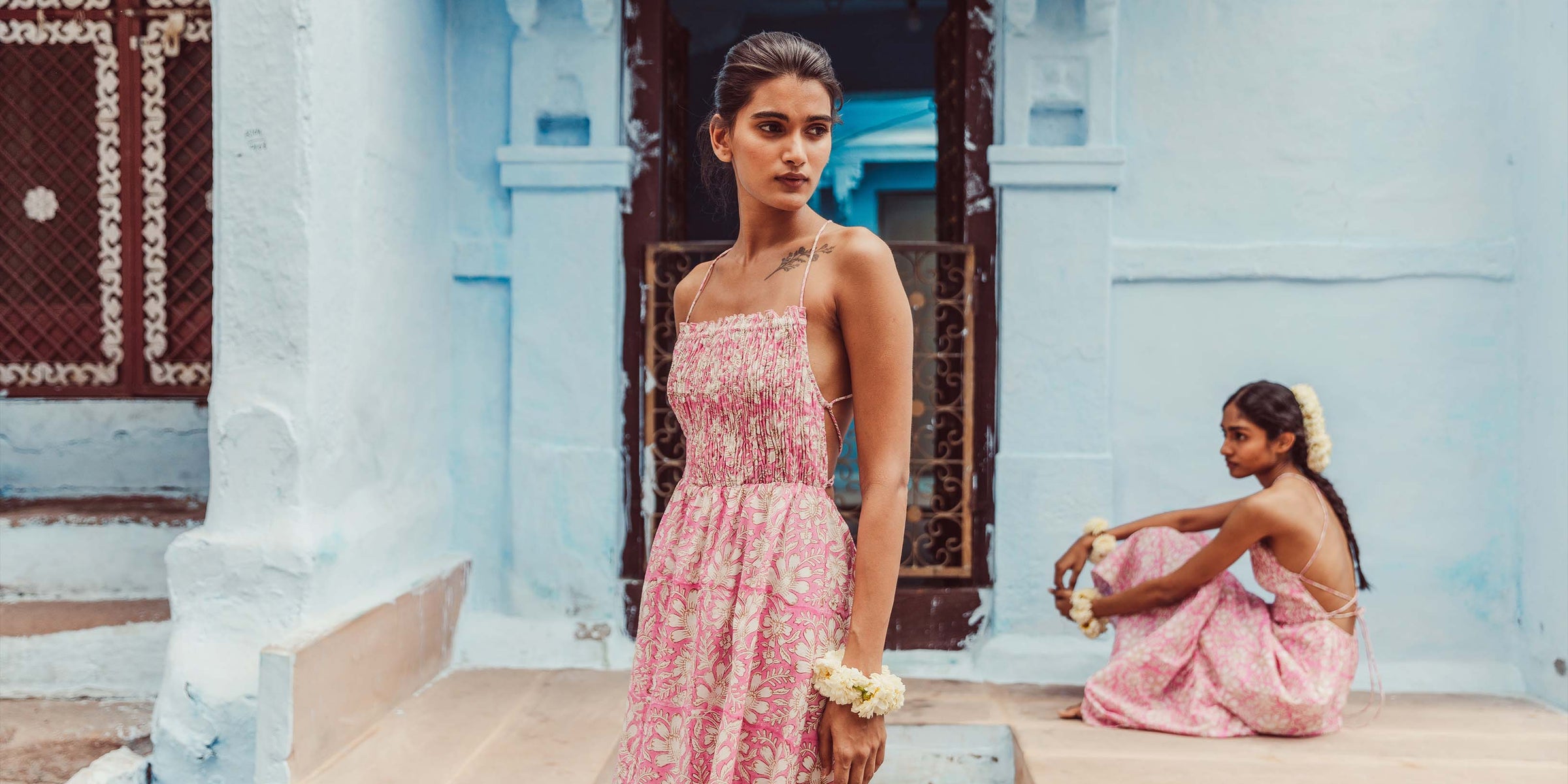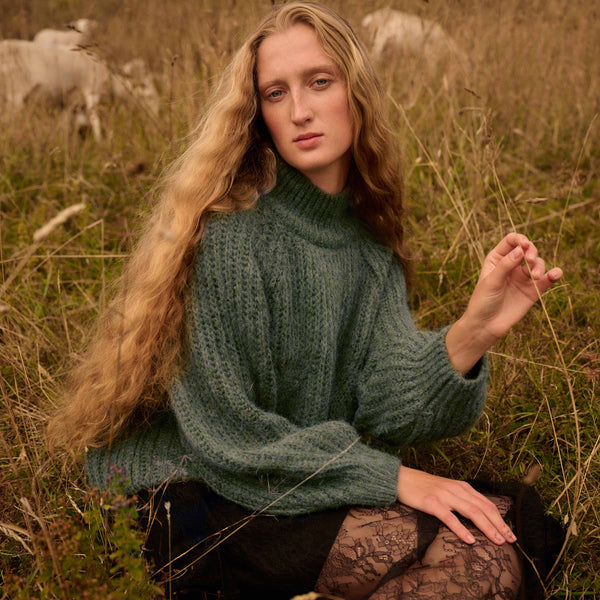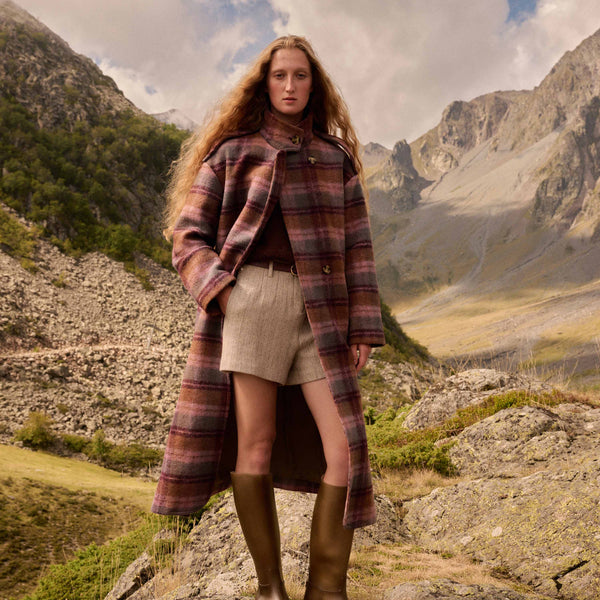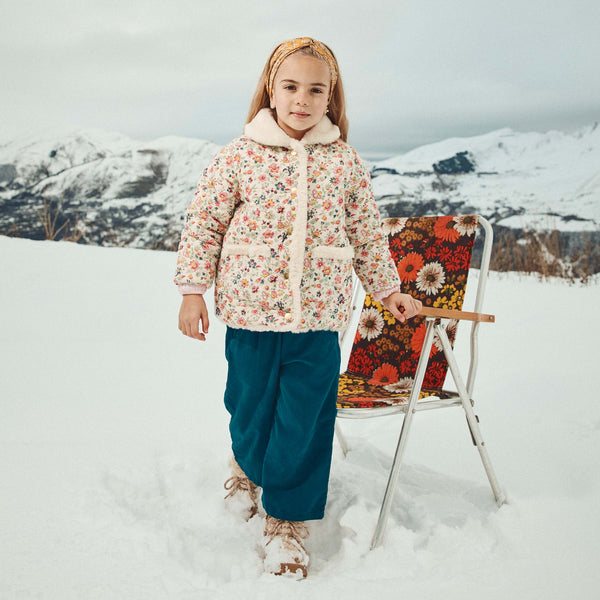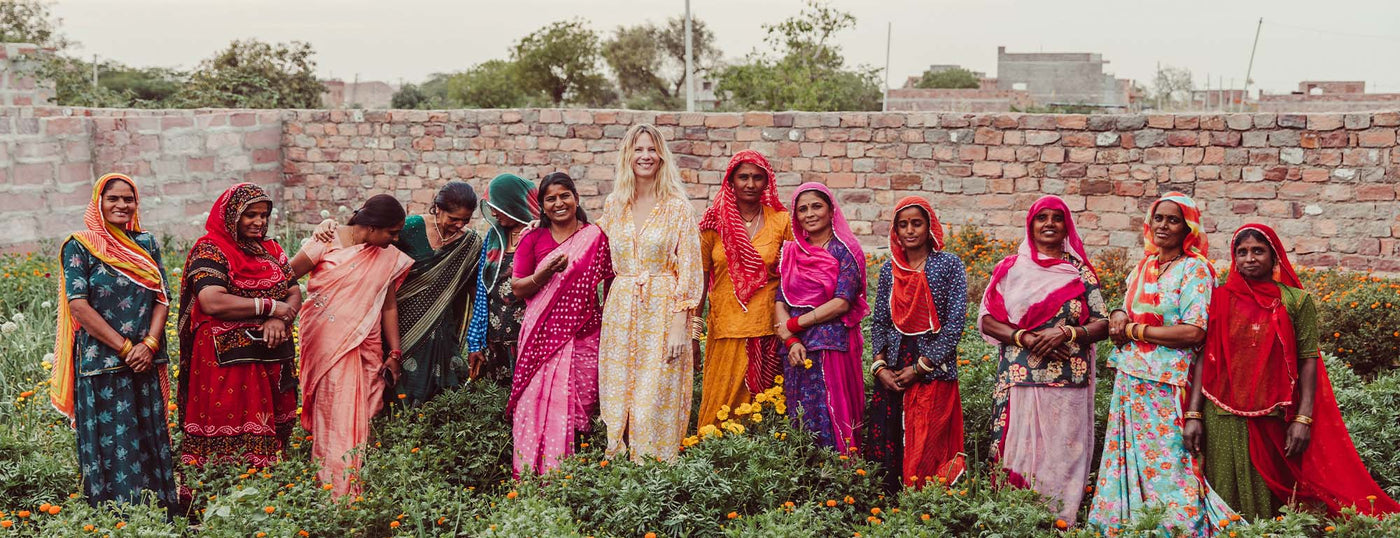

Discover an exclusive collection created as part of a project committed to empowering women.
"We are proud to partner with Saheli Women, supporting their commitment and contributing to a project led by women, for women, through a capsule collection of truly unique pieces rooted in exceptional craftsmanship."
Marie Pidancet
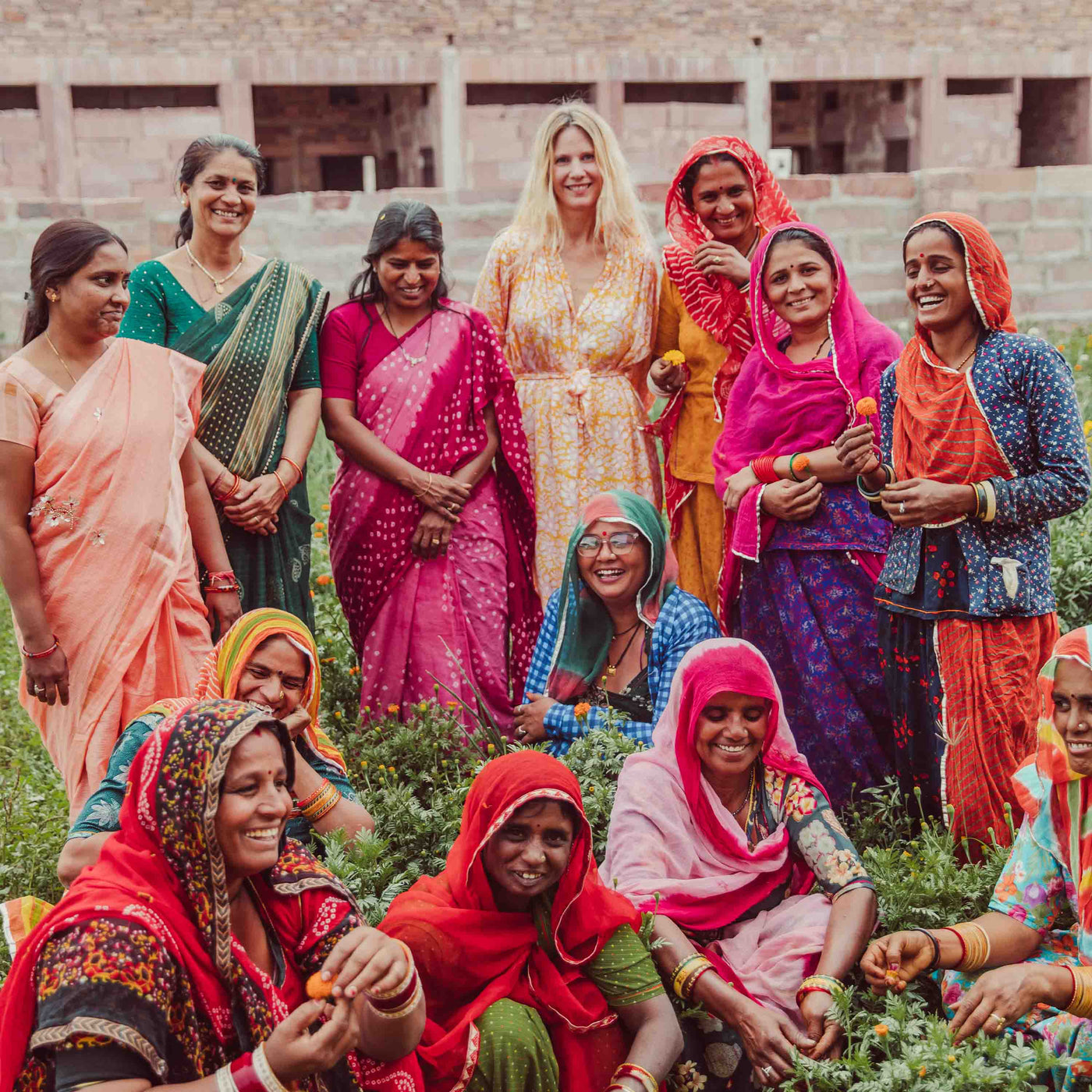
Saheli Women is an ethical fashion social enterprise founded by Madhu Vaishnav in Rajasthan, whose mission is to teach women a trade & traditional skills, financially empower them, and advocate for them.
Marie, Louise Misha’s founder, and Claire, executive director, were won over not only by the talent of the women who work there, but also by the strength of a project in which every woman receives a fair wage, chooses her working hours and accesses health and education programs.
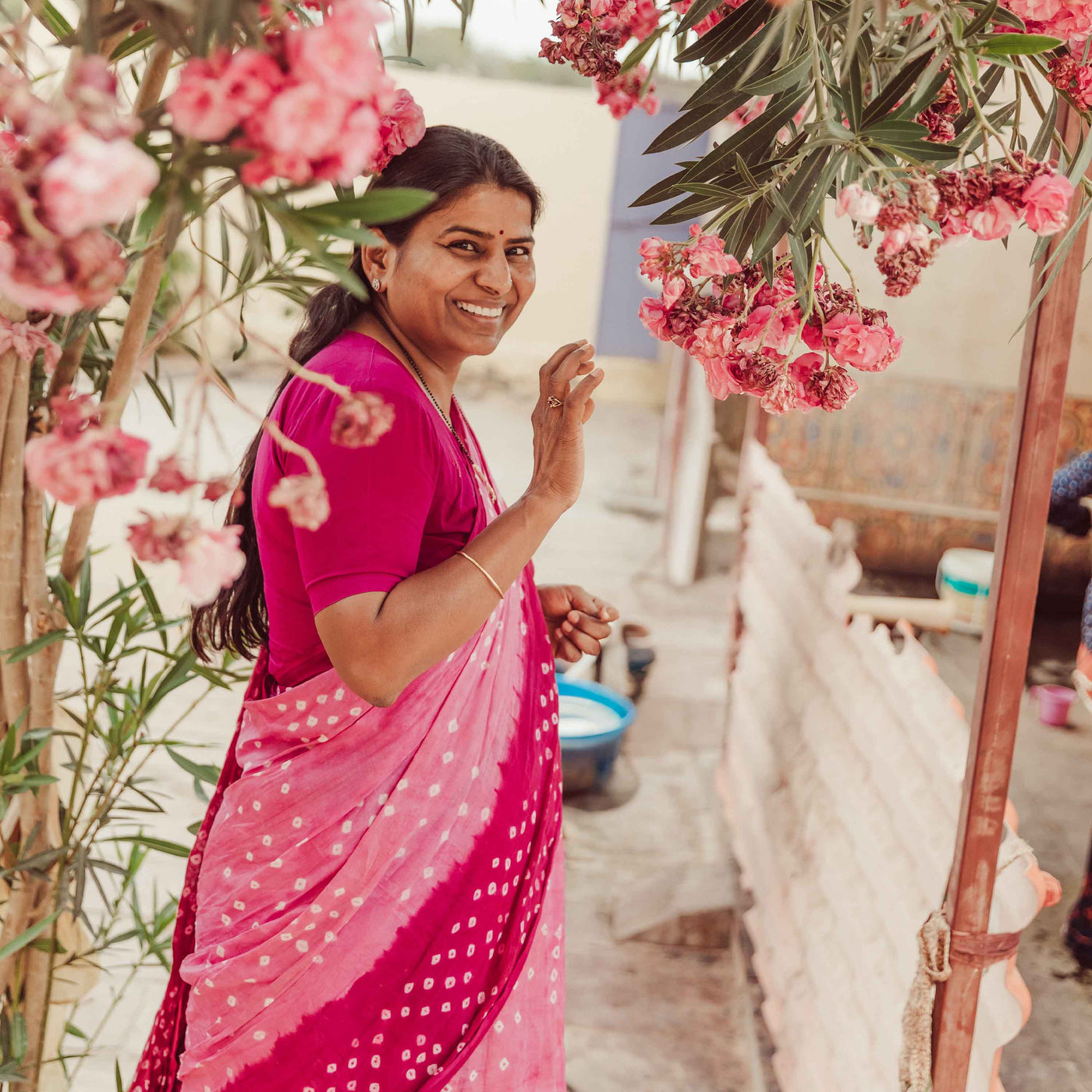
It all began with Madhu, four other women, $100, and a tiny 10-square-meter space. After founding an organization in Bhikamkor — her husband’s rural hometown — Madhu realized that every woman in the village owned a sewing machine. That’s when the idea took shape: to turn the project toward fashion and the sharing of textile skills. A vision that would allow her to fulfill her dream — giving women a path to financial independence.
“100% of the children of Saheli Women now attend school thanks to their mothers. These women are investing in their children’s happiness.”
Madhu Vaishnav
Louise Misha & Saheli Women share a passion for craftsmanship, its preservation and transmission. Hand embroidery, handloom, natural dyeing, block print and dip dye: five exceptional skills are showcased in this capsule. Each piece, with its subtle imperfections, celebrates the poetry and preciousness of handmade craftsmanship.
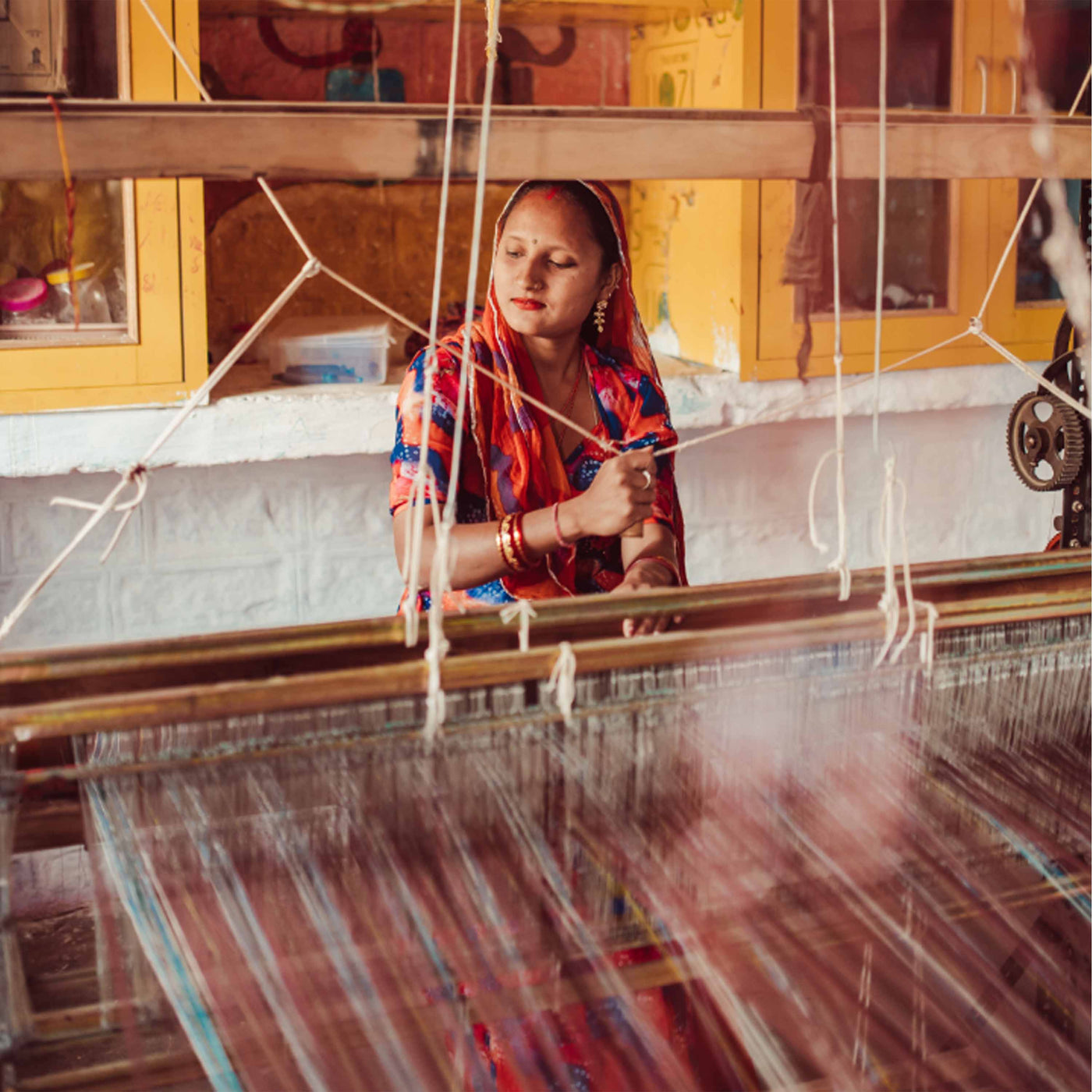
It's on this big, impressive machine that a woman threads each thread into the needles, in accordance with the required design. The preparation takes around two weeks. Then, for a single dress for example, weaving on the machine (activated by hand and foot) and sewing take around 6-7 working days.
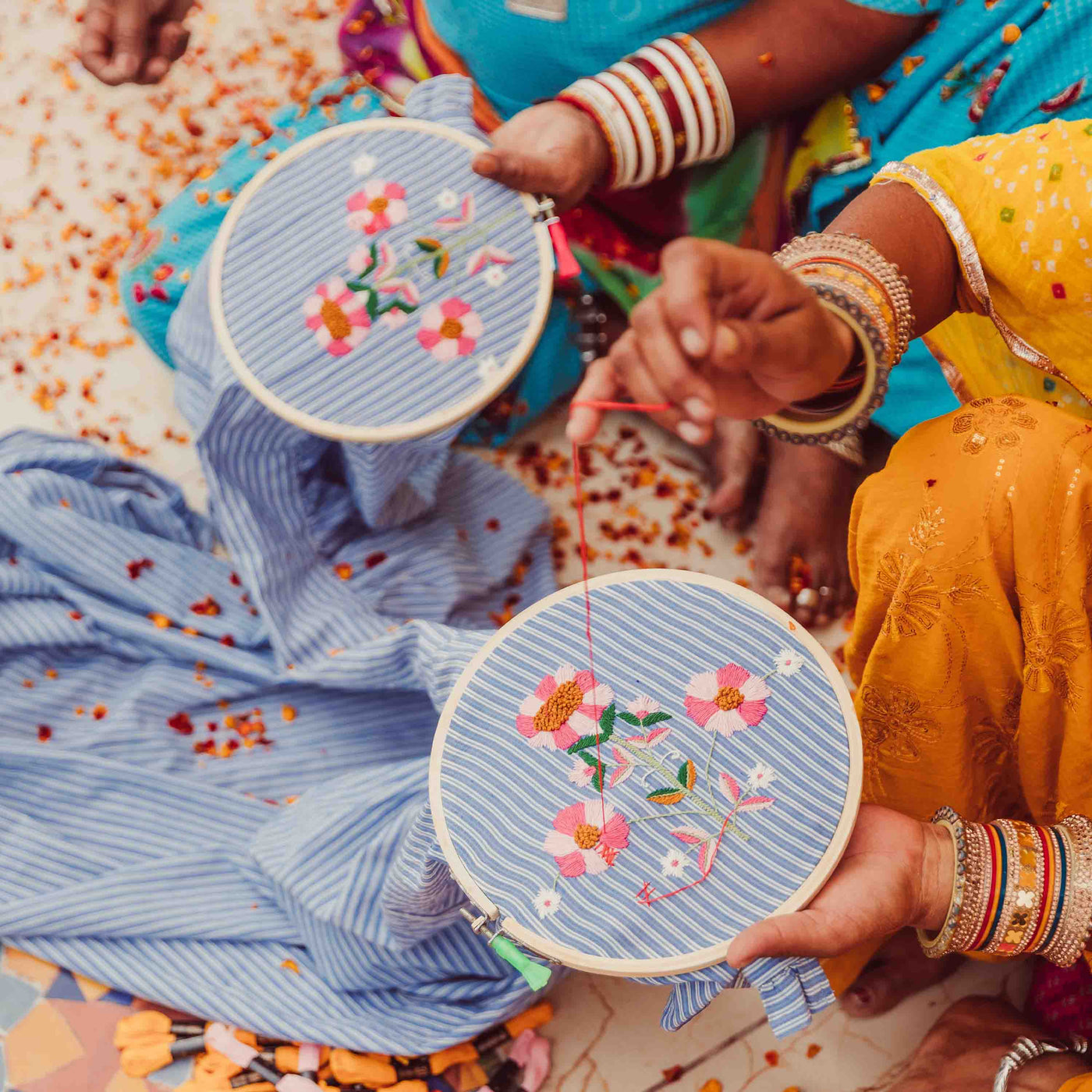
A stencil made from the desired design is placed on the fabric and covered with indigo, thus printing the outline of the design onto the fabric. The women then embroider the design by hand from this outline. One Louise Misha x Saheli Women embroidery takes around 2-3 days to complete.
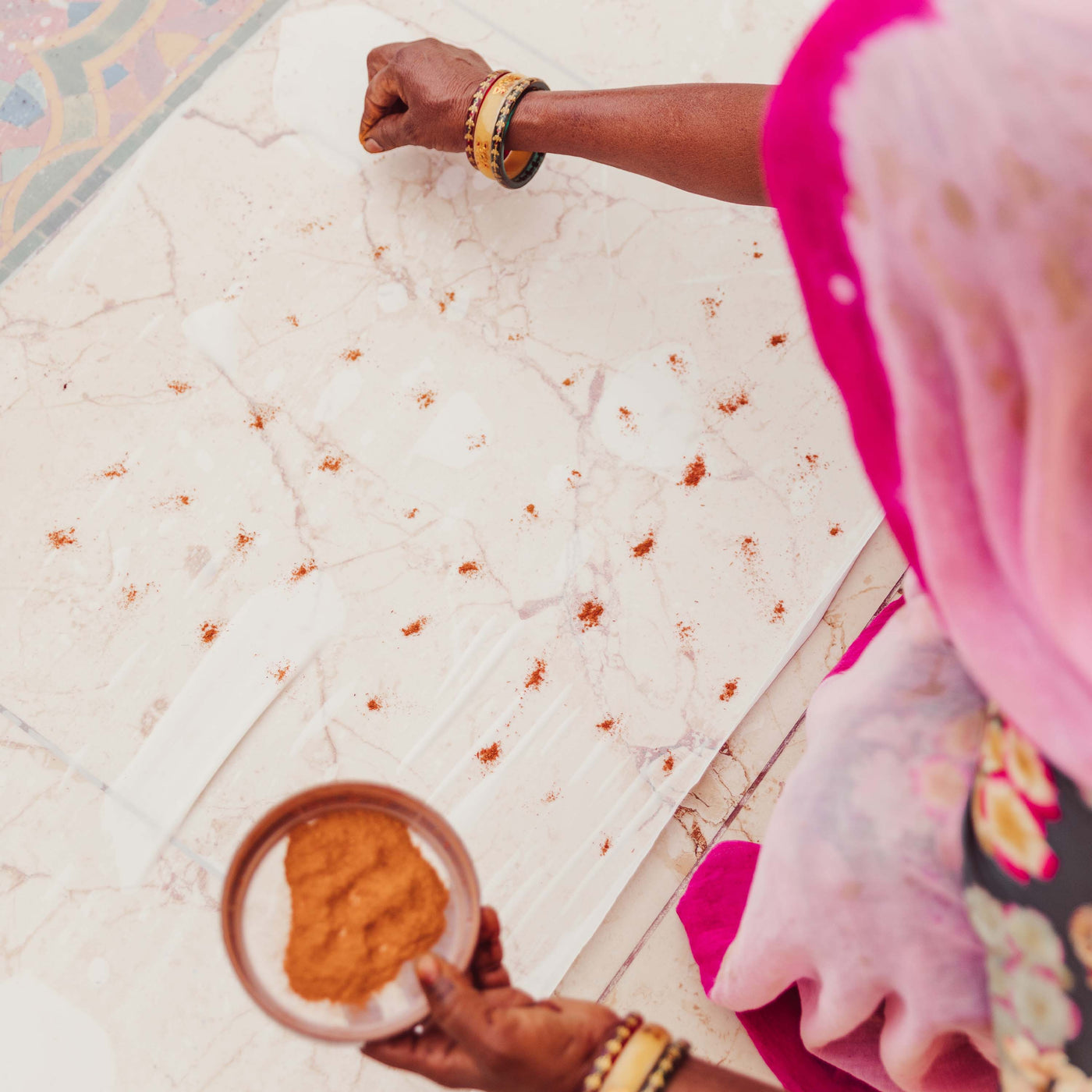
Natural dyeing uses a rare and precious powder made from resin, highly valued in traditional dyeing techniques. The dye is applied to the fabric, which is then boiled before being unfolded to reveal its unique pattern. Each piece takes about 5 hours of work.
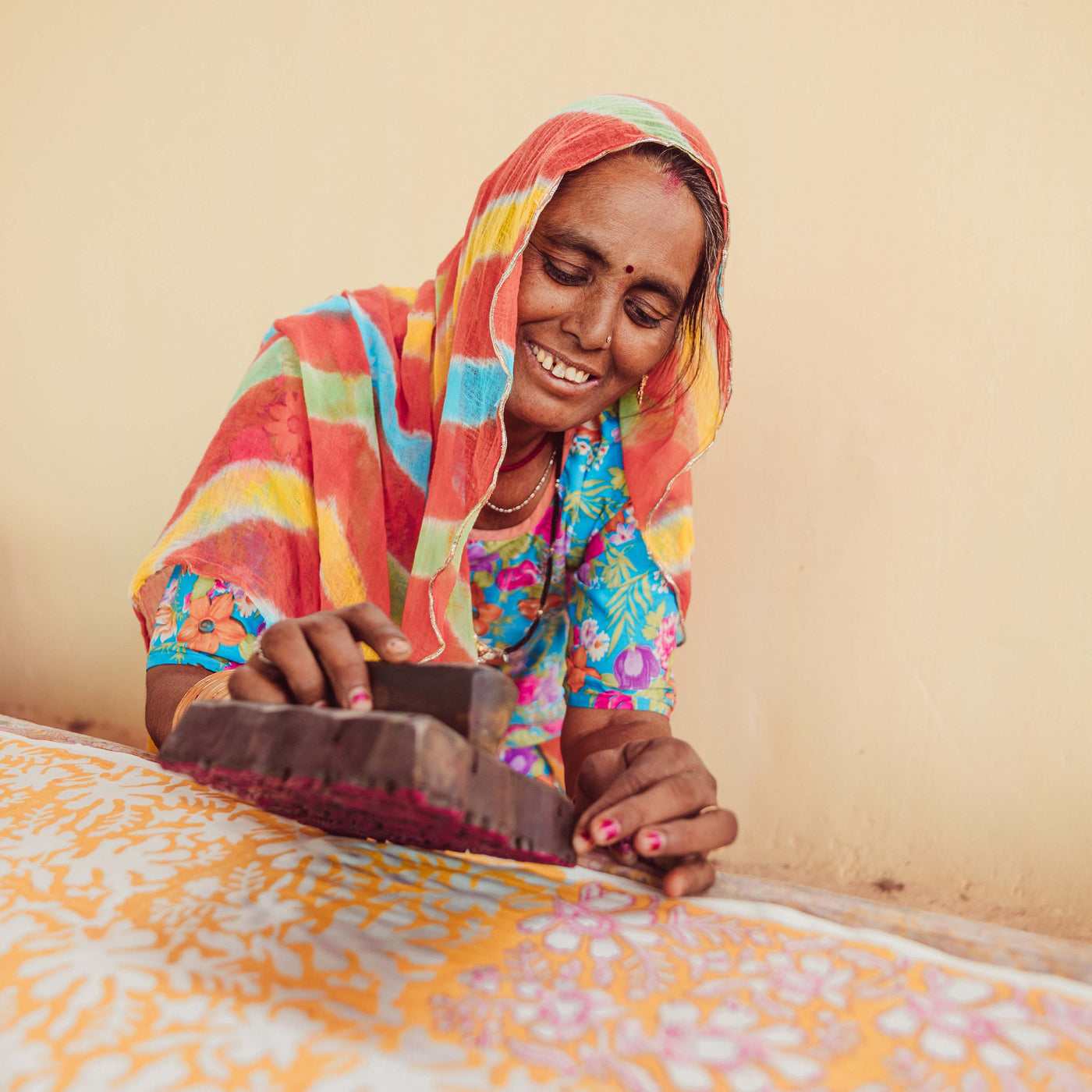
With our passion for patterns, we couldn’t help but be drawn to this craft. Block printing uses carved blocks to apply pigments, which are naturally set in the light of Jodhpur, also known as the 'Sun City.' Each piece takes about 2 days of work.
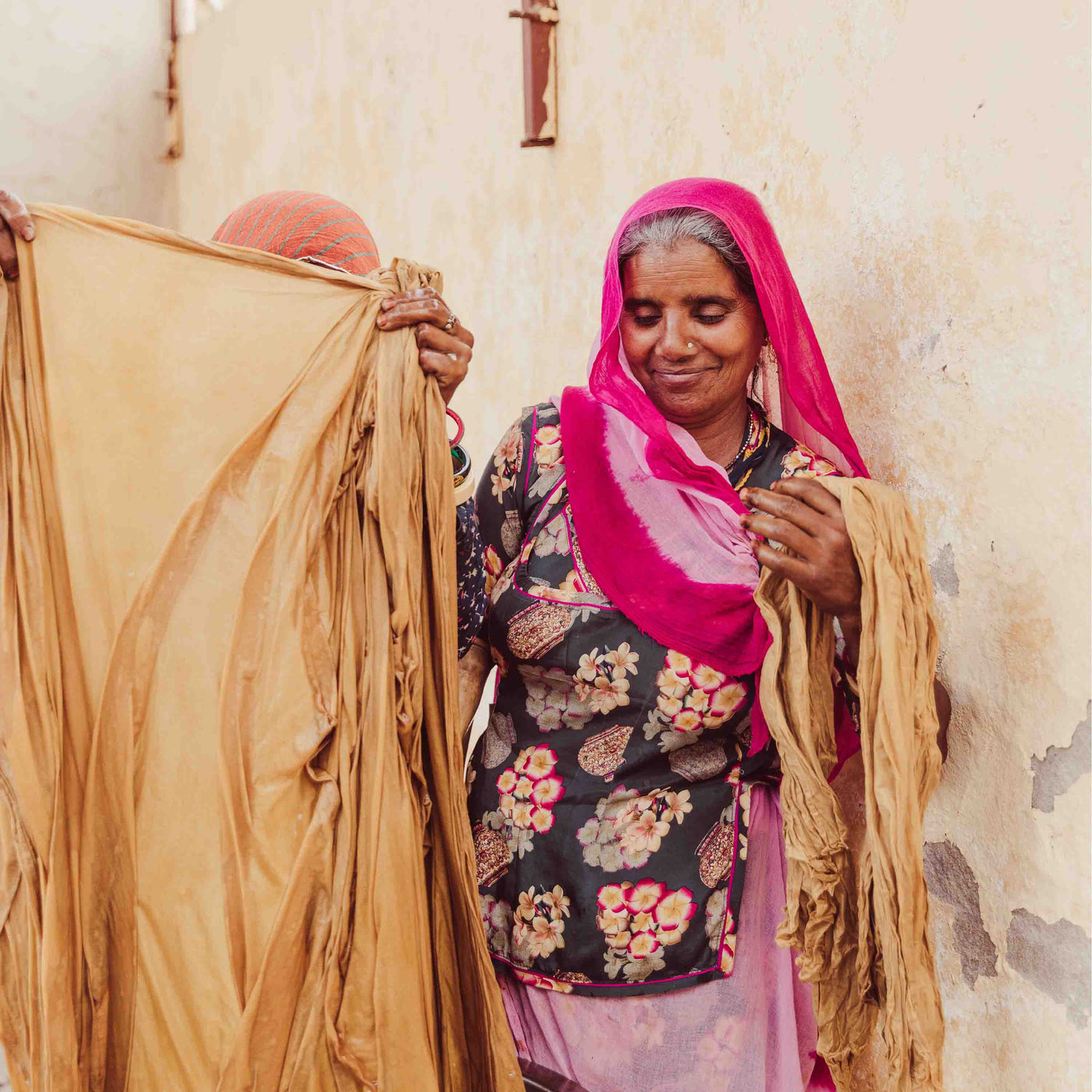
Dip-dyeing is an ancient craft that creates deep tones and unique gradients. Over the course of 3 days, each dress is first fully dyed with natural indigo, then the bottom is hand-dipped in marigold dye, allowing the color to gradually spread.
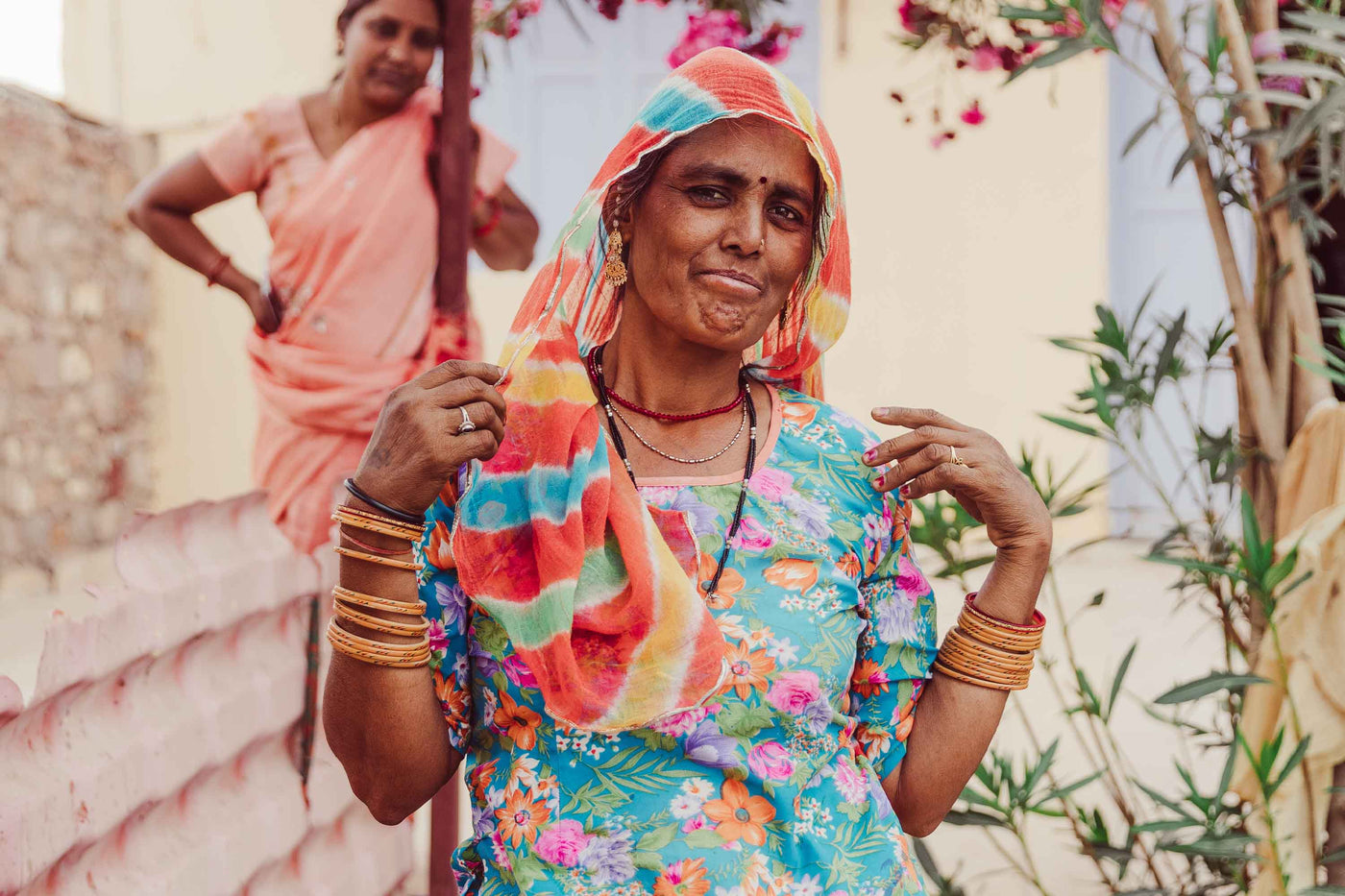
On each piece of the collection is a label with the portrait of the woman who made the garment, from A to Z, because each woman masters all the know-how and can therefore make her piece from scratch.
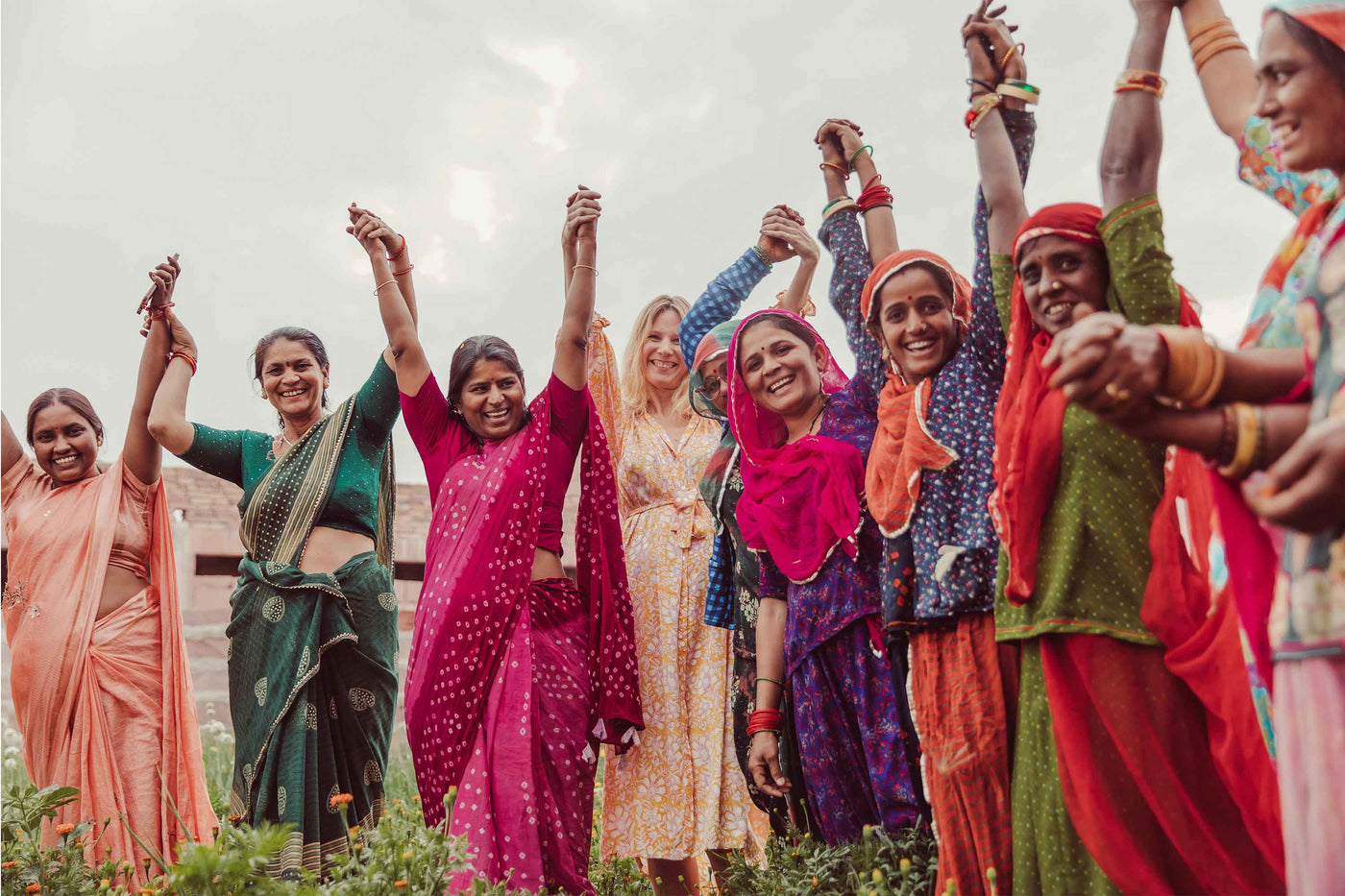
Beyond the clothing, we fully share Madhu’s vision and deeply admire the company culture she has built — one that allows women to balance work and family life, and to become leaders in their own way. This model resonates with the story of Louise Misha, a journey largely driven by women, inspired by the desire to celebrate their talent, boldness, and creativity.
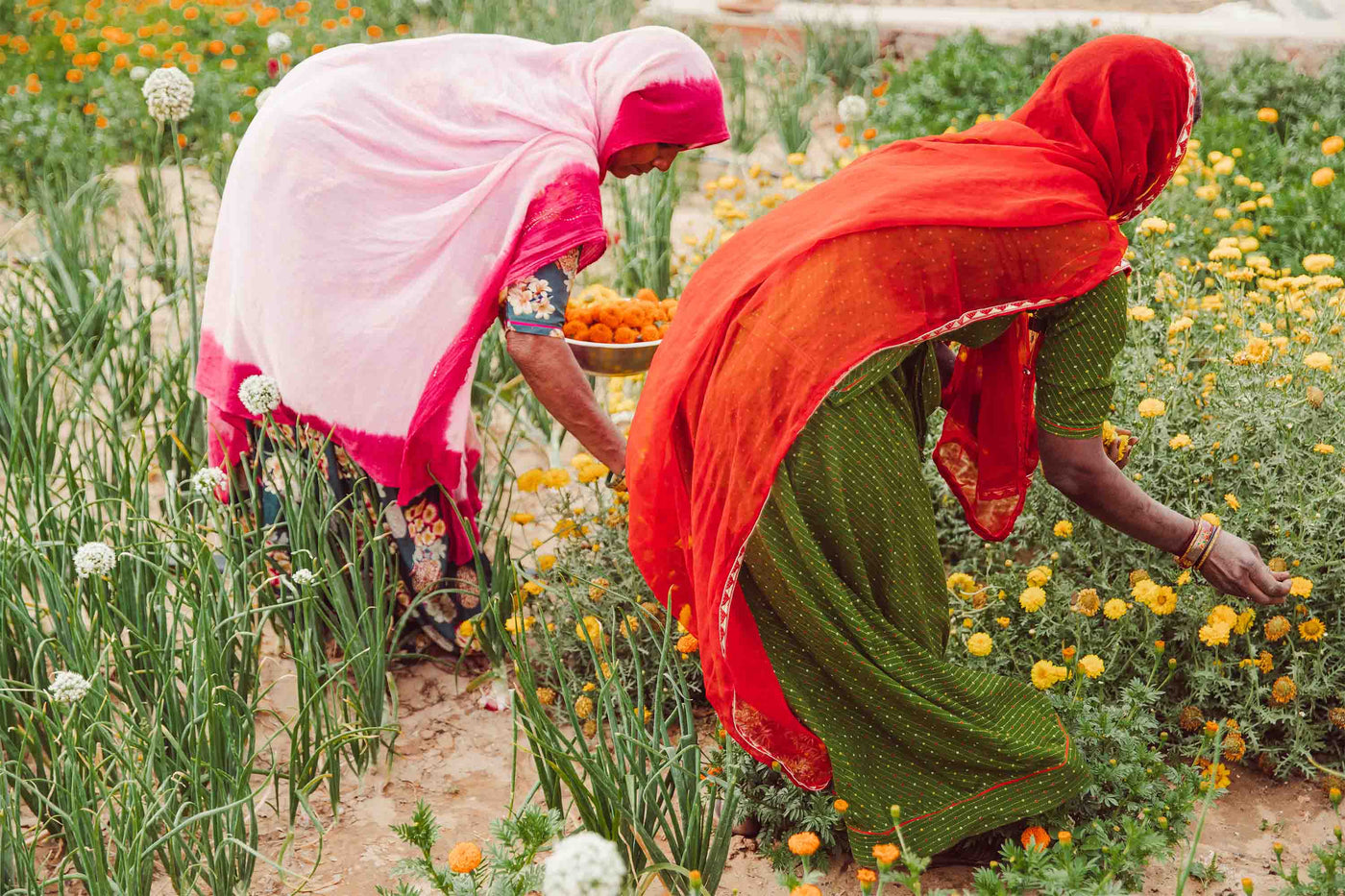
The fashion envisioned by Saheli Women is deeply connected to the earth and grounded in a strong respect for the environment. Madhu explains that 50% of the fabrics used come from repurposed saris, and no plastic packaging is ever used. This commitment is reflected in our collaboration as well, with every piece delivered in an upcycled fabric pouch.





